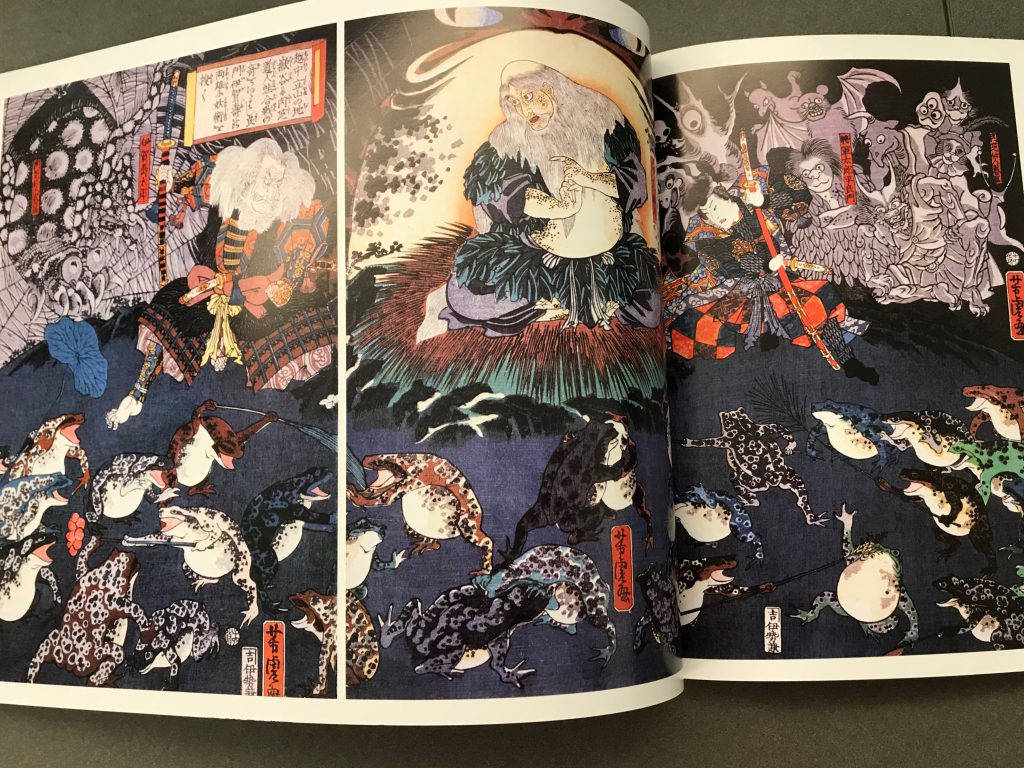
An example of a colorful three-panel woodblock print of Japanese spirits and demons from the book Yōkai: Strange Beasts & Weird Spectres — 100 Japanese Triptychs (pages 56-57)
In Japanese folklore, yōkai (妖怪) refers to legendary ghosts, monsters, and spirits. Rooted in Japanese animism, ancient Japanese religion, and the providence of nature, these mythical creatures are attributed with strange behaviors to explain the otherwise mysterious phenomena encountered in ancient life. Shedding light on the meaning of this word, the two kanji for yōkai, mean “attractive, bewitching” (妖) and “mystery, wonder” (怪) respectively. Because of their connection to human nature, yōkai were often depicted as strange embodiments of ordinary individuals or creatures — some resembling humans, for example, with altered features such as a long neck or three eyes. Others looked like strange animals, plants, insects, or household goods.

